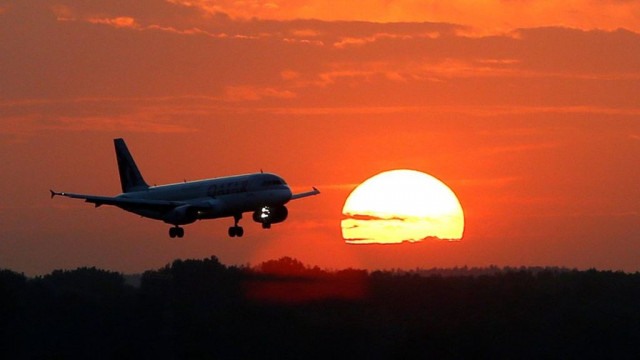PTI govt to set up aviation cities, clusters under new policy
Will also establish aerospace research parks, cargo villages for export promotion

Representational image. PHOTO: REUTERS
The government feels that the previous aviation policy, framed by the administration of Pakistan Muslim League-Nawaz (PML-N), has not brought any improvement in the aviation sector. The new policy has been drafted following request of the national flag carrier – Pakistan International Airlines (PIA).
The National Aviation Policy was earlier launched in 2015 with a view to introducing healthy changes in Pakistan’s aviation sector. However, due to some reasons, the policy could not bring the desired positive changes.
The aviation sector has faced varying problems which have hindered its development. A presentation was given to Prime Minister Imran Khan on the draft of new aviation policy on March 14, 2019. PIA highlighted different issues like very high cost of doing business, high paid-up capital requirement, unfavourable land lease and rent policy and high charges levied by Pakistan Civil Aviation Authority (PCAA) and the Federal Board of Revenue, which together contributed to the downfall of the aviation sector in the country.
PIA told the prime minister on January 1, 2019 that the aviation policy should be reviewed critically and comprehensively in a bid to support the airline industry in Pakistan. The high charges levied by the PCAA on domestic airlines for using PCAA facilities should be reviewed and rationalised to facilitate the aviation industry in doing its business, PIA said.
It pointed out that open skies clauses and associated air services agreements under the aviation policy including routes, slots and capacity accorded to foreign airlines had been discriminatory and disadvantageous for the national flag carrier and they should be reviewed on an urgent basis. Moreover, it also called for taking up the issue of high federal taxes and duties for their rationalisation.
In drafting the new aviation policy, the Aviation Division incorporated the input and feedback from all stakeholders. In line with the PM directives, the draft policy carries rationalised PCAA charges and will facilitate the entire aviation sector in the domestic market.
The new policy is aimed at ensuring growth of the aviation business in Pakistan and creating new business opportunities with a widening base which, in turn, will increase revenue and attract direct and indirect investment along with creating job opportunities.
Another important aspect which has been catered to is to safeguard the interest of national and domestic air carriers against unhealthy competition while at the same time providing incentives to the international carriers to encourage them to make Pakistan a dream destination.
The draft policy includes an entirely new class of licence called “Tourism Promotion and Regional Integration” (TPRI). Under this licence, airline operators will be able to fly to socio-economic routes including travel to some of the best tourism destinations in the country and promoting religious tourism.
In line with the government’s resolve of making Pakistan a tourism destination, the TPRI initiative is likely to bear fruit in a short period of time. Another important part of the draft policy is the economic oversight committee, headed by the aviation secretary, which will meet regularly to address the challenges faced by the stakeholders.
The role of PCAA as a regulator will be made independent of the service provider with financial and administrative autonomy within a period of two years.
The new policy mainly focuses on reduction in the cost of doing business and ease of doing business in Pakistan’s aviation sector. Parameters for aircraft age and life, and charges for non-operational aircraft will be revised. It includes tourism promotion including religious tourism and regional integration as well as review of the air services agreements and open skies policy.
The government will renegotiate air services agreements with different airlines and set up aviation cities, clusters and aerospace research parks. Cargo villages will be set up at selected airports for the promotion of exports.
Officials say the new policy will help facilitate flights to socio-economic routes and encourage tourism in the country. The government wants to develop the aviation sector on modern lines through the new aviation policy.
The writer is a staff correspondent
Published in The Express Tribune, May 13th, 2019.
Like Business on Facebook, follow @TribuneBiz on Twitter to stay informed and join in the conversation.



















COMMENTS
Comments are moderated and generally will be posted if they are on-topic and not abusive.
For more information, please see our Comments FAQ